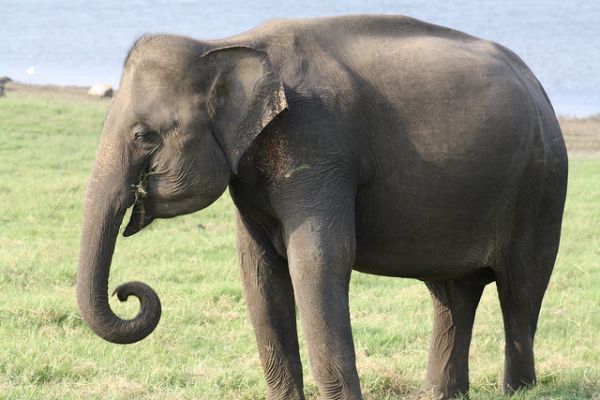
The cells of older and larger animals divide more times than those of smaller and younger animals. So, hypothetically, large animals that live a long time should be at greater risk for developing cancer. Ewen Callaway describes in Scientific American the paradox developed by epidemiologist Richard Peto:
Peto noted that, in general, there is little relationship between cancer rates and the body size or age of animals. That is surprising: the cells of large-bodied or older animals should have divided many more times than those of smaller or younger ones, so should possess more random mutations predisposing them to cancer. Peto speculated that there might be an intrinsic biological mechanism that protects cells from cancer as they age and expand.It is very rare for the notably large and long-lived elephants to have cancer. Why? Two scientific papers that were recently and independently published explain that elephants have multiple copies of a cancer-fighting gene:
Elephants have 20 copies of a gene called p53 (or, more properly, TP53), in their genome, where humans and other mammals have only one. The gene is known as a tumor suppressor, and it snaps to action when cells suffer DNA damage, churning out copies of its associated p53 protein and either repairing the damage or killing off the cell.

No comments:
Post a Comment